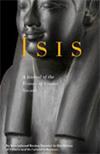Eco-Prospecting in Early Modern Wetlands
IF 0.9
2区 哲学
Q2 HISTORY & PHILOSOPHY OF SCIENCE
引用次数: 0
Abstract
What kinds of natural knowledge and natural value existed in early modern wetlands? This essay uses a naturalist’s survey of a now-vanished swamp outside the northern Italian city of Bologna to reconstruct both the ecological knowledge of the swamp’s peasant inhabitants and the processes of “eco-prospecting” by which their knowledge was gathered, recorded, and used. The naturalist, Luigi Ferdinando Marsili, systematically interrogated the wetlanders for their site-specific knowledge of the seasonally dynamic relations between fish, water, plants, and weather. He also recorded in detail the wetlanders’ building of hydraulic infrastructure, practices of cane cultivation, and artisanal craftwork with the swamps’ natural materials. Marsili’s survey revealed the swamp as a place that was neither hostile nor barren (as most outsiders saw it) but populated and productive, filled with natural materials that could be used to sustain human communities and also to support divergent visions of resource management and extraction.早期现代湿地生态勘探
早期现代湿地中存在着什么样的自然知识和自然价值?这篇文章使用了一位博物学家对意大利北部城市博洛尼亚外一个现已消失的沼泽的调查,以重建沼泽农民居民的生态知识和“生态勘探”过程,通过这些知识被收集、记录和使用。博物学家路易吉·费迪南多·马西利系统地询问了湿地居民对鱼、水、植物和天气之间季节性动态关系的具体知识。他还详细记录了湿地居民利用湿地天然材料建造水利基础设施、种植甘蔗的做法和手工工艺。马西利的调查显示,这片沼泽既不像大多数外人所看到的那样充满敌意,也不荒芜,而是人口稠密、生产力高的地方,充满了可以用来维持人类社区的自然材料,也可以支持资源管理和开采的不同愿景。
本文章由计算机程序翻译,如有差异,请以英文原文为准。
求助全文
约1分钟内获得全文
求助全文
来源期刊

Isis
管理科学-科学史与科学哲学
CiteScore
1.00
自引率
16.70%
发文量
150
审稿时长
>12 weeks
期刊介绍:
Since its inception in 1912, Isis has featured scholarly articles, research notes, and commentary on the history of science, medicine, and technology and their cultural influences. Review essays and book reviews on new contributions to the discipline are also included. An official publication of the History of Science Society, Isis is the oldest English-language journal in the field.
The Press, along with the journal’s editorial office in Starkville, MS, would like to acknowledge the following supporters: Mississippi State University, its College of Arts and Sciences and History Department, and the Consortium for the History of Science, Technology, and Medicine.
 求助内容:
求助内容: 应助结果提醒方式:
应助结果提醒方式:


